Barrister's low pay means he moves back in with parents
- Published
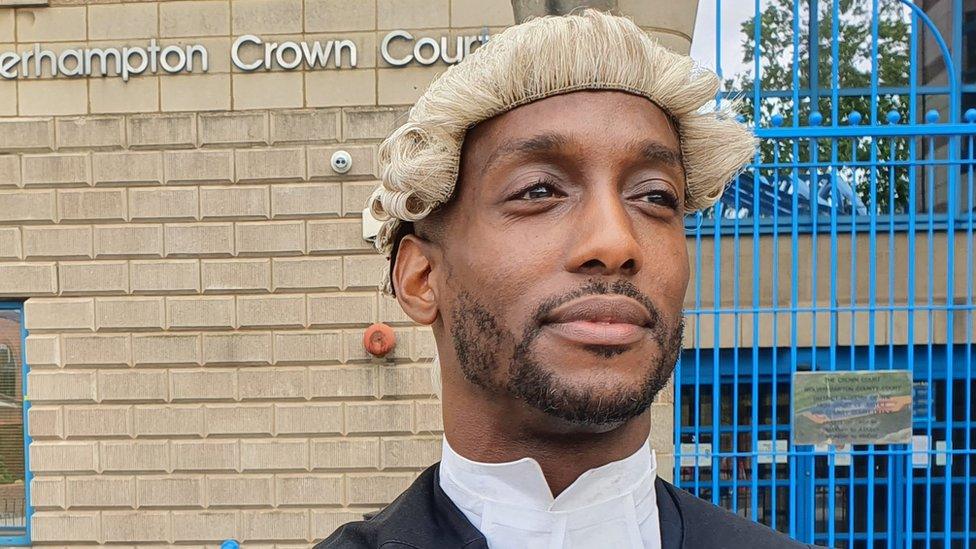
Curtis Dean Myrie says he faces having to cut out "everything other than the basics"
A barrister who is on strike has said he earns so little he has been forced to move back in with his parents.
Curtis Dean Myrie, from Wolverhampton, said the rising cost of living meant he could not afford to live independently.
The 41-year-old said while people thought barristers rich, he earned little more than the minimum wage.
The Ministry of Justice said strike action was "wholly unjustified", with the government planning to increase pay by 15%.
Criminal barristers across England and Wales have voted to extend their strike indefinitely from 5 September in the long-running dispute over pay, working conditions and legal aid funding.
It is expected to delay thousands of cases, leaving victims and those accused of crimes waiting longer for justice.
According to the Criminal Bar Association (CBA), in their first three years, specialist criminal barristers often earn less than the minimum wage.
"Based on my earnings and the rising cost of living, I am going to have to cut out everything other than the basics and have to live with my parents in order to survive," Mr Myrie said.
"I can't go on holiday, I can't really save, I have to cut all non-essential subscriptions like TV streaming."
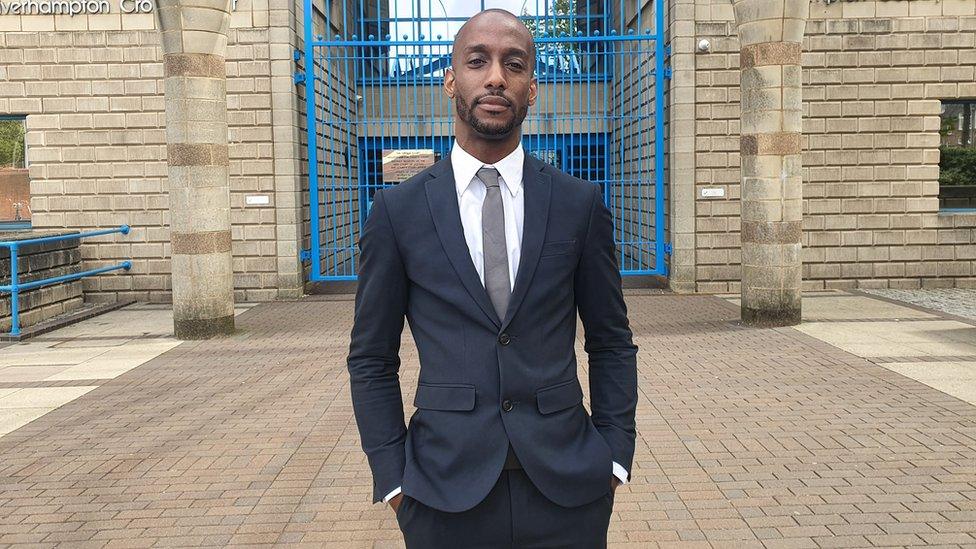
Mr Myrie said junior barristers like himself typically earned about £12,500 a year after tax
Barristers are self-employed and are often perceived as highly paid.
The median salary for a criminal barrister in the year 2019-20 was £79,800, according to an independent review, external. However, this figure does not account for expenses.
Meanwhile, new criminal barristers can earn as little as £9,000 once costs are factored in.
Mr Myrie said junior barristers earned about £12,500 a year, making it "very hard to make ends meet".
"The public just think that barristers are rich, they earn lots of money and they can't possibly be struggling in the current living crisis," he said.
But many criminal barristers relying on legal aid funding earned "no more than minimum wage" he said.
During the pandemic, the CBA reported 83% of criminal barristers faced personal debt.
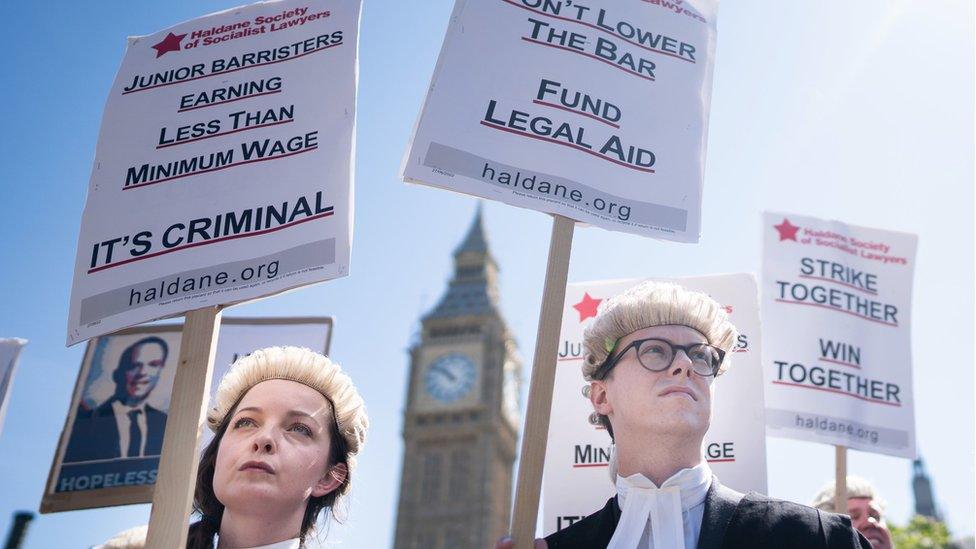
From 5 September, barristers will be on an indefinite, uninterrupted strike in England and Wales
Barristers have demanded a minimum 25% increase on wages - rejecting the government's proposed 15% rise.
"Fifteen per cent doesn't really cover the amount of investment that is actually needed," Mr Myrie said.
"Typically, you can be working the whole day. Preparing before you go to court, the actual work in court and preparing in the evening for next day that comes.
"You can be involved in work for at least 12 hours a day. Most likely a lot longer."
Mr Myrie qualified as a barrister in 2021 and previously worked as a solicitor advocate for 11 years.
After five weeks of strike action, Mr Myrie has been filling his time volunteering in a charity shop, but predicts he may soon be forced to return to work or seek financial help.
"Due to the added financial impact of the strikes, depending on how long they go on for, I'm likely to have to ask for financial help from a hardship fund to cover basics like mortgage and fuel," he said.
"I'd like to think that a responsible government, knowing the crippling impact that strikes will have on the criminal justice system, would respond and would at least come to the negotiating table.
"But if there is absolutely no response - I think the reality is that barristers will get to the point where they will unfortunately have to come back to work to fund the most basic needs that are needed in life."
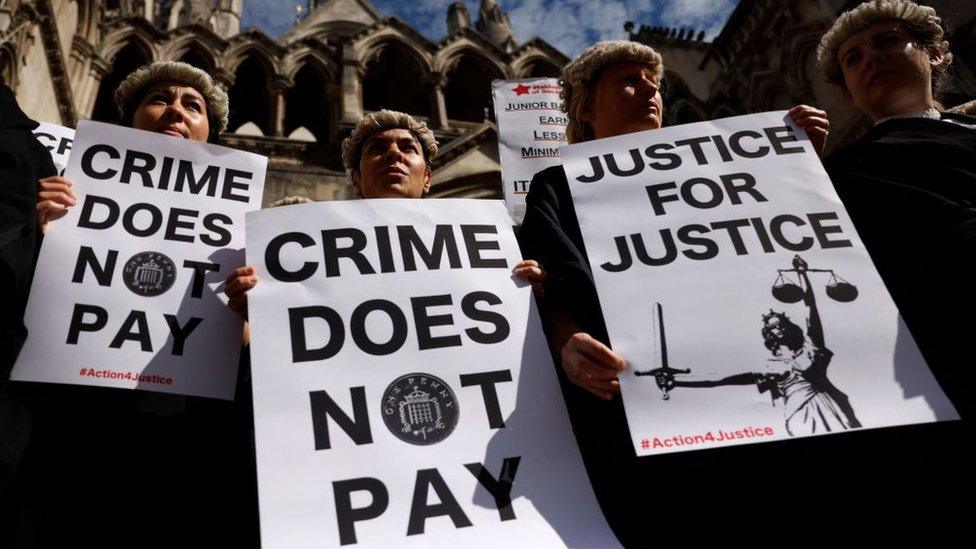
The CBA is asking for a 25% rise in pay for legal aid work, representing defendants who could not otherwise afford lawyers
Data from the CBA shows the number of specialist criminal barristers has shrunk by a quarter in the past five years and the speed at which they were leaving legal aid work had quadrupled in 2020-21.
With a backlog of nearly 60,000 cases waiting to be heard, concerns have been raised about how strike action will affect an already strained justice system.
Mr Myrie, who was on the picket line on Tuesday, believes protests are necessary to improve the criminal justice system and pave the way for future barristers.
"The decision to strike is made not only for the sake of the profession but also for the criminal justice system," he said. "The legal profession as a whole has been very underfunded for a long time.
"For the sake of those more junior, for the sake of their colleagues, [barristers] are making these decisions which are really impacting on their lives and livelihood."
Justice minister Sarah Dines said the decision to strike was "irresponsible" and would "only see more victims face further delays and distress".
"The escalation of strike action is wholly unjustified considering we are increasing criminal barristers' fees by 15%, which will see the typical barrister earn around £7,000 more a year," she said.

Follow BBC West Midlands on Facebook, external, Twitter, external and Instagram, external. Send your story ideas to: newsonline.westmidlands@bbc.co.uk, external
- Published22 August 2022
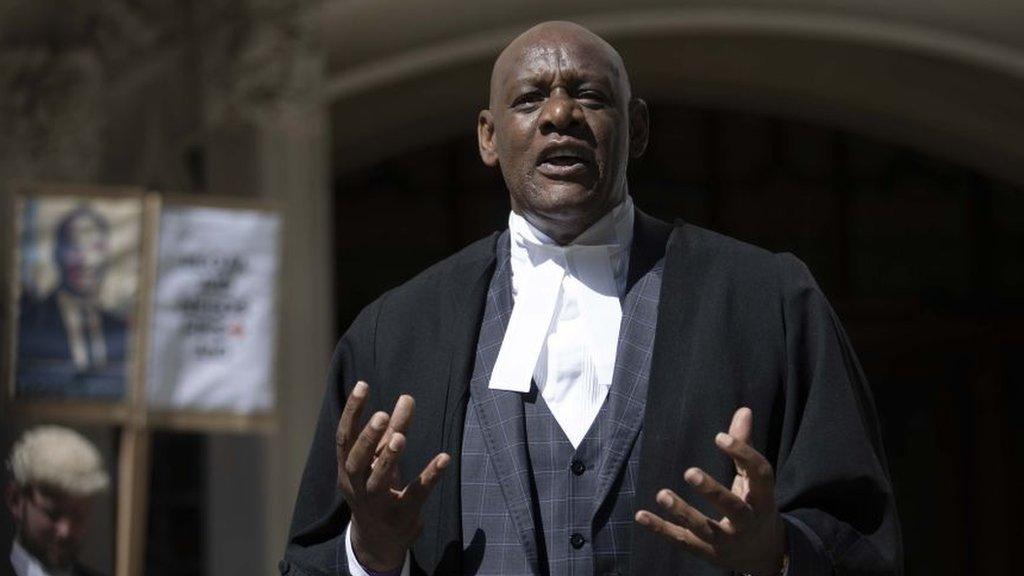
- Published18 July 2022
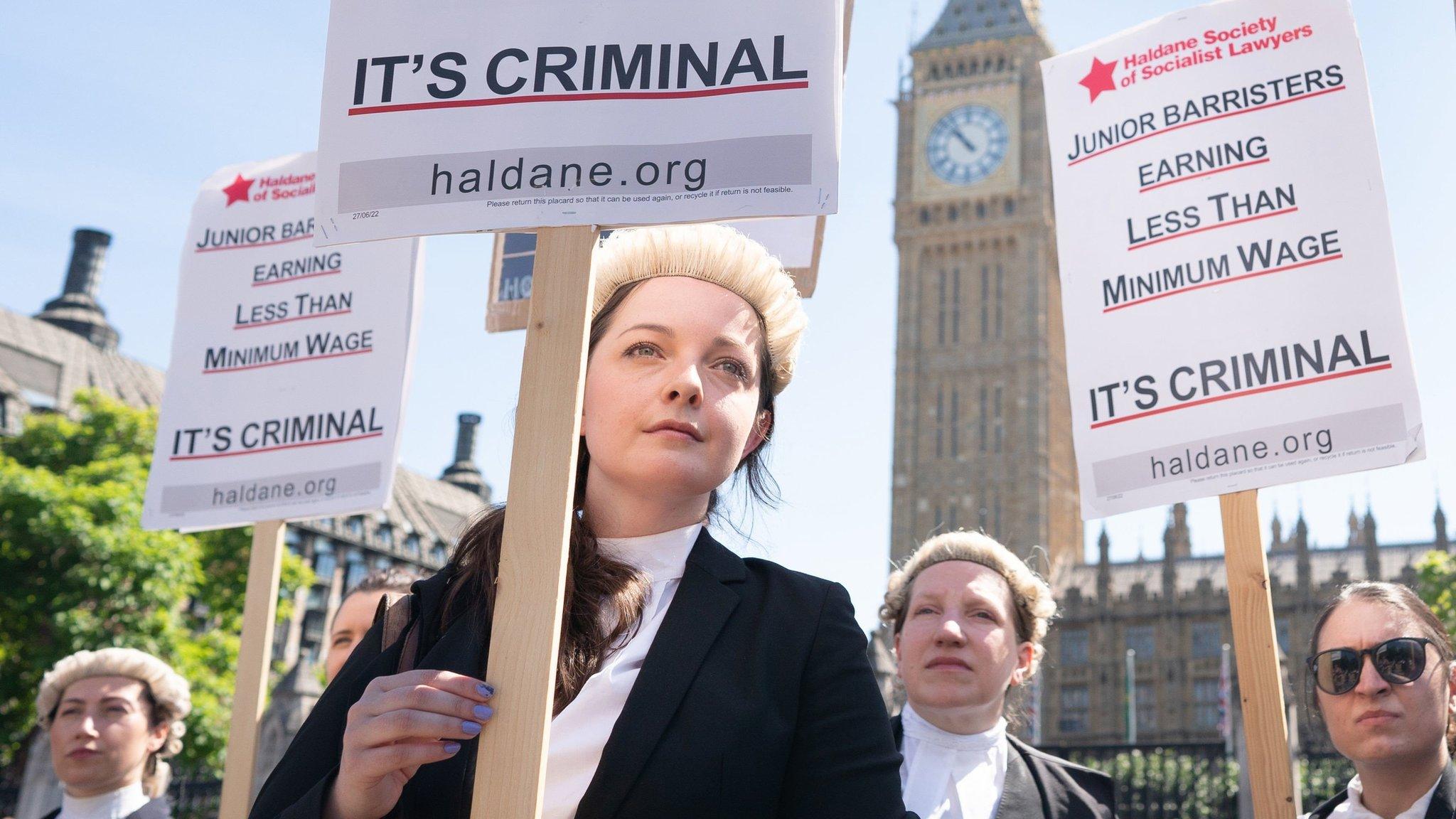
- Published1 August 2023
